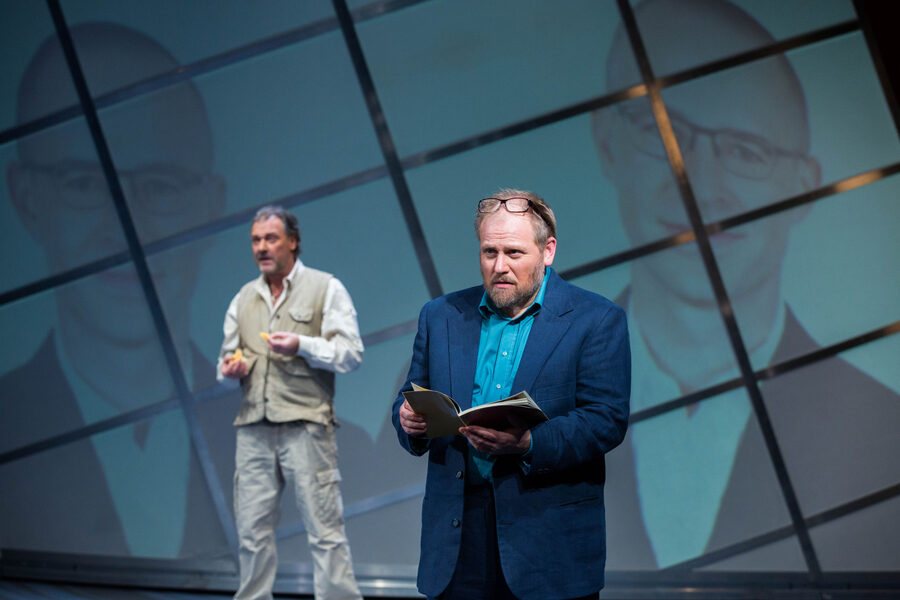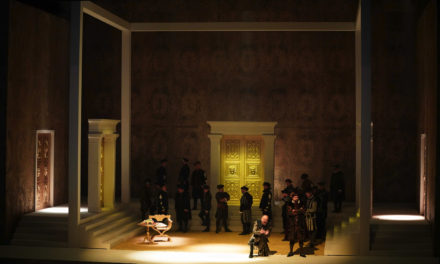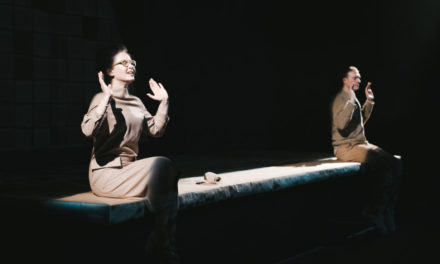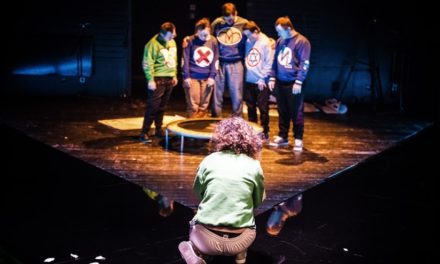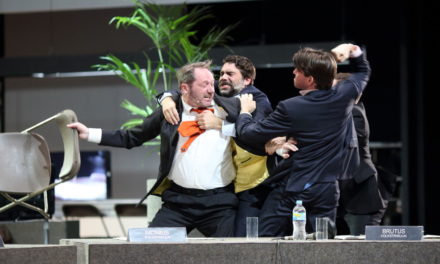Ulrike Syha: When was Eurodram, a network for drama in translation, founded? What was the initial impulse back then, and who was involved?
Dominique Dolmieu: I discovered Europe in 1989; there was a wall and some people behind. In 1991, when everybody advised me against going, I went to Albania to learn more about what was happening. I met a painter about my age, who sent me right to an amazing playwright, Kasëm Trebeshina. I ordered my first translation, did my first staging, and discovered that it was the first time an Albanian play was performed in French. The most amazing in this story, is that this painter was Edi Rama, who is now the Prime Minister of the Republic of Albania, and the translator Mirella Kumbaro, is now minister of Culture.
Then we decided to prepare an anthology of Balkan playwriting, that was finally released 7 years later. During this time, we connected with many playwrights and theatre translators in the area. Since 1999 we also visited Caucasus, and saw how the problems were similar. In 2001 we organized the Little/Little project , bringing 50 artists from 25 countries touring from Tbilisi to Paris, performing in 20 countries, which was quite a strong experience. We organized meetings like”Balkanisation générale” and “The Mountain of Languages”, and also decided to run our own publishing house.
All these years have taught us this: the biggest part of French theatre was terribly afraid of Southern and Eastern European playwritings, even while French audiences were definitively eager to know more. In 2009, we decided to extend our activities to the Mediterranean languages, but the capitalist boom, we have not been able to do this extension properly yet. Several hundreds of professionals have been involved in this process from the beginning. Better not to mention anyone ! Only Céline Barcq, the director of the Maison d’Europe et d’Orient, that hosts the network.
US : How does the network operate today? How many people are there, and what kind of institutions are involved?
DD: There are 30 committees organized by languages, totaling about 300 hundred people. You can have a look to know the members and how to contact to committee coordinators here. We work in a biennale timeframe. In the even years, each committee selects three plays originally written in its own language, that are recommended for translation into other languages. In the odd years, each committee selects three plays translated into its own language, and recommends their publication and performance. We also read extracts of translations, so the translators can get an idea if it is worth going on or not with his/her project. You can have an idea of the selections here.
Many different institutions are involved of course, as well as many independent cultural pools & networks. Until now 20 governments, from Canada to Uzbekistan have supported the activities of MEO, the network Eurodram being an important part and main source of these activities. We collaborate with NITE of course, and many others universities, society and union of playwrights, publishers, theatre and translation schools, theatres, festivals, the media… But only real humans can join the network!
US: Can you describe the network’s key objectives?
DD: The main focus is to circulate plays, and promote different translations of them, in order to enlarge national repertoires. Last session, about 350 plays circulated in the whole network, and today the French committee already has about 60 translations circulating, even before the posting of our call for translated texts. Of course, nobody needs us to translate anything between French, English or German. We are more useful to projects involving (so-called) rare languages, minorities, unrepresented people, etc. And especially between them. We have the chance in France to have institutions like the INALCO university, and many possibilities to run such a platform. You can have all the information here.
US: Share some thoughts about the past. What is your “best Eurodram memory”? A special translation that was initiated, published or staged? Or a collaboration between a translator and a playwright or theatre that evolved through the network?
DD : There are so many! In link with l’Espace d’un instant publishing house, we did several anthologies, and the one with Caucasus was really a great opportunity to discover other theatres, totally unknown, but so close to us. Translating first Chechen and first Roma plays… the Unmikistan project in Kosovo, with Daniel Lemahieu and Jeton Neziraj… the coming of Aliye Ummanel and the Turkish municipal theatre of Nicosia, with demonstrations in front of our doors… the unreleased plays of Vaclev Havel or Nâzim Hikmet… the first publishing of plays by Kasëm Trebeshina, after 17 years of talks… We also had very important moments with Christiane Montécot, Milos Lazin, Bernard Outtier, Mylène Sauloy, Arben Selimi, Virginie Symaniec, Matéi Visniec. We’re also preparing some new ones: in the next week we will publish the first play translated from Ukrainian into French, as a result of a residence of Neda Nejdana in our bunker in Paris. After this, all main languages from Europe will have a theatre translation in French.
US: And some thoughts about the future. What are the next steps and plans for Eurodram? In what direction do you want the network to grow?
DD: There is now a real new generation of professionals. Last general assembly in Prishtina, connected with the Polip festival, run by Qendra Multimedia and a meeting of The Fence, with the help of Teatroskop & Traduki programs, was really a nice event. At the moment we are in the process of recruiting translators and collecting translated texts. Our 2015 open call is reaching out to playwrights and translators to send their translations to us by the 31st of December. The selections will be announced in April 2015, and we should soon get a confirmation that our next meeting will happen in Nicosia next May. I would also like to involve more academics from different capital cities, so that we could draw a map and see which languages have no theatre translations between them. Where next to our put our strengths?
Dominique Dolmieu is the general coordinator of the Eurodram network. He also runs the Théâtre national de Syldavie and the publishing house l’Espace d’un instant, hosted by the Maison d’Europe et d’Orient, directed by Céline Barcq. As a theatre director, he has staged several plays by Dejan Dukovski and Goran Stefanovski.
Ulrike Syha is a playwright and translator, born in Wiesbaden, Germany. She studied “Dramaturgie” at the “Hochschule für Musik und Theater” in Leipzig. Since 2003 she lives as a freelance writer in Hamburg, Germany. Her award-winning plays, radio dramas and translations are published by Rowohlt Theater Verlag, Reinbek, Germany.
This post was written by the author in their personal capacity.The opinions expressed in this article are the author’s own and do not reflect the view of The Theatre Times, their staff or collaborators.
This post was written by The Theatre Times.
The views expressed here belong to the author and do not necessarily reflect our views and opinions.

